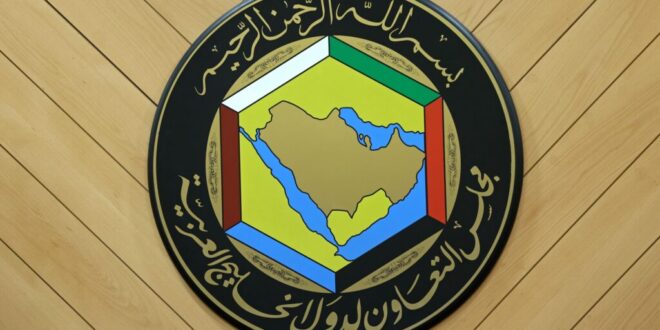Despite the ongoing war, the states in the Gulf Cooperation Council still see Israel as a legitimate regional player and reject Hamas’s call for radical violence.
Nearly six months ago, Hamas upended the Middle East equilibrium. Now, with the war in Gaza still raging, the Gulf Cooperation Council (GCC) has charted a new vision for regional security, one that rejects Hamas’s violence and extremism while paving the way for further Arab-Israeli normalization. While Hamas and its patrons in Tehran likely hoped to unite the region against Israel by provoking this war, the GCC has affirmed its continuing commitment to stability through diplomacy.
The six members of the GCC—Bahrain, Kuwait, Oman, Qatar, Saudi Arabia, and the United Arab Emirates—convened in Doha, Qatar, this week and approved and published a “Vision for Regional Security.” The thoughtful and comprehensive document signifies the leading pragmatic Arab countries’ understanding of their joint challenges. The group outlines fifteen areas for “joint efforts,” touching on international security and stability, strategic partnerships, energy supplies and oil markets, maritime security and freedom of navigation, climate change, and economics.
Curiously, the GCC vision does not directly refer to October 7 or explicitly mention the following war. But for Israel, the text is reassuring. The GCC countries express a clear commitment to stability, security, and prosperity and, between the lines, accept that Israel has a legitimate place in the regional order. That was the spirit of the dialogue that this article’s Israeli author had with his Arab counterparts when he served as National Security Advisor during the previous Israeli government. That was the message that Israel’s regional peace partners agreed to at the Negev Forum Summit, which convened in Israel just two years ago, in March 2022.
Although the GCC vision dances around the subject, reading the document through the lens of the ongoing war in Gaza illuminates the GCC’s priorities and concerns. One will notice that Israel isn’t mentioned by name, and the Israeli-Palestinian conflict is addressed only through the GCC’s reiteration of its traditional support for the Arab Peace Initiative, which Saudi Arabia proposed in 2002. That document recognized Israel’s 1967 borders and opposed solutions brought about by extremism and violence. In keeping with the spirit of the Arab Peace Initiative, the GCC further warns “that the continued blocking of prospects for a just resolution is a key factor in destabilizing the region” and fuels “extremism, hatred, and violence.”
This is interesting because, as pro-Hamas activists in the West chant, “From the river to the sea, Palestine will be free,” the pragmatic Arab states—leading champions of the Palestinian cause—are amplifying the opposite message: Israel’s existence is not up for negotiation. Borders and security arrangements are on the agenda.
Pro-Hamas activists will be further disappointed to know that the GCC vision rejects Hamas’s ideology. Without mentioning Hamas by name, the GCC pledges to refrain from supporting, financing, and arming terrorists and to criminalize all groups carrying out terrorist acts. Hamas is a U.S.-designated Foreign Terrorist Organization and is sanctioned in some form in the UK, Canada, Australia, New Zealand, and across Europe. On October 7, Hamas slaughtered over 1,100 people and took over 240 hostages, brutalizing victims along the way.
And the GCC did not stop there. Another country that isn’t mentioned explicitly — but that the GCC calls out loud and clear—is the Islamic Republic of Iran.
The GCC all but denounces the various aspects of Iran’s malign activity. The Gulf countries stress the importance of non-proliferation—hinting at the Iranian nuclear program. They emphasize maritime security—a nod to Iranian and Iran-backed Houthi aggression in the Red Sea. And they call for halting the transfer of drones and missiles to “terrorist militias and sectarian groups”—an apparent reference to Iran’s supply of arms to non-state actors and proxy organizations across the region.
In addition to malignant threats, the GCC identifies several civil areas for cooperation, including climate change, energy, and food and water insecurity. The GCC calls for regional and international collaboration and partnership to support these goals. The group states upfront that they aim to forge “constructive relationships and international partnerships” to address “sources of threat and tension in the region” and around the globe.
This renewed commitment to partnership recognizes that the United States, the broader West, and the pragmatic Arab states face common threats. It is also a motion for the United States and other Western countries to join forces to stabilize the Middle East in the face of their shared adversaries. The Abraham Accords, now almost four years old, put this mindset into motion. Saudi Arabia was poised to join the Abraham Accords before Hamas—and Iran—sought to disrupt the normalization process by plunging the region into war. But their strategy is not working. Despite the ongoing war, the pragmatic Arab states still see Israel as a legitimate regional player and reject Hamas’s call for radical violence.
Hopefully, the time will soon be ripe for Riyadh to renew normalization talks with Israel. Bringing Saudi Arabia into the Abraham Accords has the potential to unlock a wave of normalization across the Arab world. Israel can hopefully join the region’s collaborations and frameworks as a full partner at that point.
 Eurasia Press & News
Eurasia Press & News




